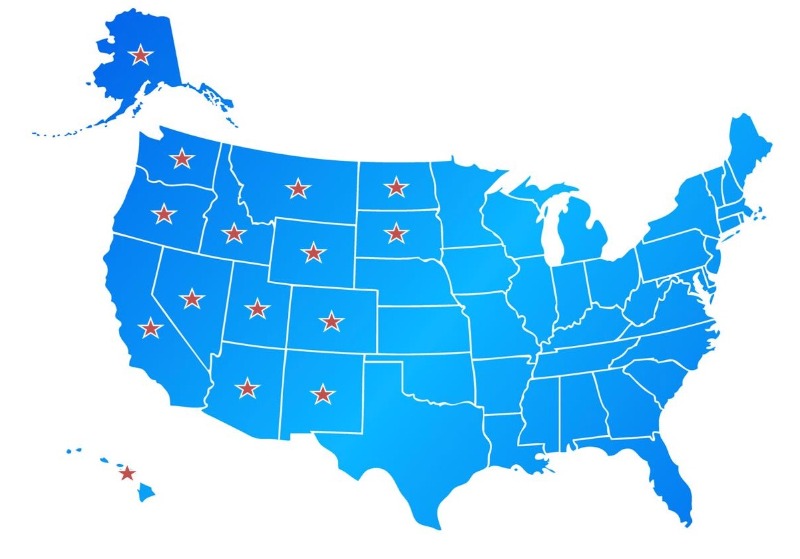Tuition
MIAGE Makes Excellence Affordable
The Master of Science in International Affairs and Global Enterprise (MIAGE) is an
interdisciplinary program that allows students to customize their studies to fit their
interests at an affordable price. With a total of 39 credits required to complete
the degree (42 if the internship is required), a Master of Science in International
Affairs and Global Enterprise provides you with the opportunity to gain valuable skills
needed to succeed without breaking the bank.
Thanks to the Master of Science in International Affairs and Global Enterprise's interdisciplinary
setup, MIAGE students can design their elective schedule to fit their educational
and financial needs.
How Much Does MIAGE Cost?
TUITION STARTS AT $28,000*
The Master of Science in International Affairs and Global Enterprise program's average base cost is $28,000, which includes tuition charges and student fees.
*This price is for Utah residents who only take the four core classes that carry differential tuition. International students and non-residents may be subject to higher tuition costs.
Tuition FAQs
How Does MIAGE Tuition Work?
MIAGE tuition is a combination of standard base tuition charges, university fees, and differential tuition. Since MIAGE is an interdisciplinary program, tuition costs can vary depending on the differential tuition attached to a student's selected elective courses.
What is Differential Tuition?
MIAGE tuition costs fluctuate due to differential tuition or added fees applied to classes by some departments in addition to the standard graduate tuition rate. The amount of differential tuition added varies by department. Differential tuition is a source of revenue that is used to cover operating costs for departments, such as paying faculty, purchasing instructional supplies, etc.
By Department:
School of Business
Applies to all Business School Courses
$597.22*
per credit hour
*Subject to change without notice
School of Law
Applies to all Law Courses
$352.87*
per credit hour
*Subject to change without notice
MIAGE
Applies only to designated IAGE courses
$564.47*
per credit hour
*Subject to change without notice
All Other Departments
Do I Qualify for In-State Tuition?
Student who meet the residency requirements set by the University of Utah's Office of Admissions are able to pay in-state tuition prices. To see the most up-to-date information on residency requirements, click the button below:
Reduced Tuition for Residents of WICHE States
 The MIAGE program is proud to be part of the Western Regional Graduate Program (WRGP).
WRGP makes high-quality, distinctive graduate programs available to students of the
West at a reasonable cost. As part of the Student Exchange Program of the Western Interstate Commission for Higher Education, WRGP helps place students in a
wide range of graduate programs, all designed around the educational, social, and
economic needs of the West.
The MIAGE program is proud to be part of the Western Regional Graduate Program (WRGP).
WRGP makes high-quality, distinctive graduate programs available to students of the
West at a reasonable cost. As part of the Student Exchange Program of the Western Interstate Commission for Higher Education, WRGP helps place students in a
wide range of graduate programs, all designed around the educational, social, and
economic needs of the West.
Through WRGP, residents of Alaska, Arizona, California, Colorado, Hawaii, Idaho, Montana, Nevada, New Mexico, North Dakota, Oregon, South Dakota, Utah, Washington, and Wyoming are eligible to enroll in available programs outside of their home state at reduced tuition rates. Students need not meet financial aid criteria.
To be included in WRGP, programs must meet the criteria of distinctiveness and quality. Programs are nominated by their institutions, peer reviewed by other graduate institutions in the West, and approved biannually by the Student Exchange Program Advisory Council, a policy body that represents all participating states.
To receive WRGP tuition status, students apply directly to The University of Utah Master of International Affairs and Global Enterprise program and identify themselves as WICHE WRGP applicants. WRGP students must fulfill all the usual requirements of the institution concerned and meet all admission deadlines.
How do you apply for WRGP status?
You should apply for admission to the program through the regular admissions process.
Please contact the Program Manager and let them know you are applying as a WICHE WRGP student.
How do you establish residency for the program?
WRGP is open to all residents of the 15 participating states. Normally, students should
be a resident of one of these states for at least one year before applying for admission
as a WRGP student.
What does a student do if they are billed at the wrong tuition rate?
Occasionally, a student is incorrectly billed for the full nonresident tuition. If
this happens, please contact us immediately.
Can a student attend part-time as a WRGP student?
Unfortunately, part-time students (matriculated) are not eligible to participate.
Who can I contact for more information?
Contact our Program Manager for assistance with the WRGP and the MIAGE degree. For more information about the
Western Interstate Commission for Higher Education (WICHE) visit their Grad School and WICHE websites linked below.
What Financial Aid is Available?
Visit our Financial Aid page to learn more about opportunities available to MIAGE students.
What Other Costs Are There?
In addition to the tuition and fees listed above, students should also plan for other costs as well:
Textbooks and Materials:
Textbook costs can vary widely depending on the course and where the student buys
their books. We recommend budgeting several hundred dollars each semester to cover
books and materials costs. Printing on campus is available for a small cost payable
using your student ID card.
Parking Passes:
Students who wish to drive to campus should plan on either purchasing a parking pass
or paying hourly parking fees. Information on current parking prices is available
on the University of Utah's Commuter Services website. Matriculated students at the University of Utah can use their student ID card to
access most public transportation in the Salt Lake Valley for free.
Internship and Study Abroad Fees:
Students who participate in an internship or study abroad may be required to pay additional
costs, such as food, travel, and program fees. Many internships offer compensation,
and there are a variety of internship funding opportunities available through the
Hinckley Institute that can help to offset any additional costs. Visit our internships page for more information.
Room and Board:
Students are responsible for arranging their own housing and food. There are a variety
of options both on and off campus. On campus housing options are available through
the University of Utah's Housing and Residential Education office. There are also a large number of off campus options in Salt Lake City. When
looking for apartments, students should keep in mind that many restricted income properties
in Salt Lake City have rental restrictions for full-time students.




